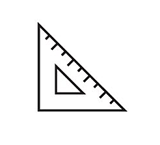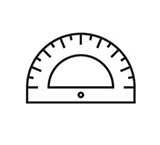독일 암모나이트(German Ammonite)100607-02 
| 국내/해외배송 | |
|---|---|
| 배송비 방법 | 택배 |
| 배송비 | 4,000원 (50,000원 이상 구매 시 무료) |
| 수량 |
|
| 상품 정보 | 가격 | 삭제 |
|---|---|---|
| [총 상품금액(수량)] 0 (0개) | ||
학명: Dactylioceras sp. Ammonite on Slate
지질시대: 후기쥬라기(Upper Jurassic) 약 1억4천5백만년전
지층: Lias Beds
크기(Size) : 70 mm in Dia on 158 mm by 150 mm matrix (visible)
원산지: 독일(Holzmaden, Germany)
암모나이트 화석 중에 가장 넓게 퍼진 종이 탁틀리오세라스(Dactylioceras)일 것이다. 이들은 프랑스, 마다카스카르, 모로코, 독일 등 매우 많은 곳에서 발견된다. 그러나 홀즈마덴의 암모나이트처럼 극심한 압력은 받은 지층은 없다. 이들은 입체적인 암모나이트의 모양이 그야말로 종이짝처럼 스트레스를 받아서 화석이 된 경우이다. 이 화석이 발견되는 셰일의 또 다른 특징은 모암에 무수하게 많은 표본이 들어 있다는 것이다. 앞면은 물론이고 뒷면에서도 표본이 발견된다. 어떻게 이러한 현상이 발생한 것일까. 학자들은 암모나이트가 알을 낳고서는 죽었을 것이라는 학설을 제공한다. 마치 연어처럼 말이다. 그래서 암모나이트가 알을 낳고 죽었을 때 바다의 밑바닥은 암모나이트들의 껍질(시체)로 가득 했을 것이고 이런 환경이 퇴적으로 인해서 표본과 같은 독일의 암모나이트 화석이 탄생했을 것이라고 예기하고 있다.
암모나이트화석은 중생대 표준화석이다.
표준화석은 개체수와 종류도 많아야 함은 물론이고 각각의 종류들은 일정한 시대에 살았다가 멸종했다는 특징을 가지고 있다. 고생대의 삼엽충이나 필석이 그렇고 중생대의 암모나이트나 공룡들이 그렇다. 물론 신생대의 화폐석이나 매머드가 그렇다. 아쉽게도 한국에는 중생대 해성층(바다가 융기해서 만들어진 지층)이 없어서 암모나이트의 발견이 될 수가 없다. 그러나 고생대의 해성층은 태백과 영월이 있으며 신생대의 해성층은 포항과 제주가 있다.
Ammonites are among the most esthetic of fossils. They have been discovered on almost every continent and became extinct 65 million years ago along with the dinosaurs. This large Ammonite plate is from the classic locality of Holzmaden, Germany, which dates back to the Jurassic period over 170 million years ago. It demonstrates the inexorable crushing pressures that these fossils are subjected to by overlying sediments. In life the ammonites that grace this plate were probably more than an inch thick. The accumulated mud layers of hundreds of millions of years slowly had the water pressed out of them by this overlying material. Any foreign materials such as these ammonites were also squeezed flat by the same titanic pressures. These forces were so gradually applied that the delicate ripples in the golden brown shells of these ammonites are still visible. In time the soft mud of the ancient sea bottom was compressed into the black shale this plate has become. This large ammonite plate is a stunning expression of the past and the beauty of nature.



















 확대보기 및 상세정보
확대보기 및 상세정보